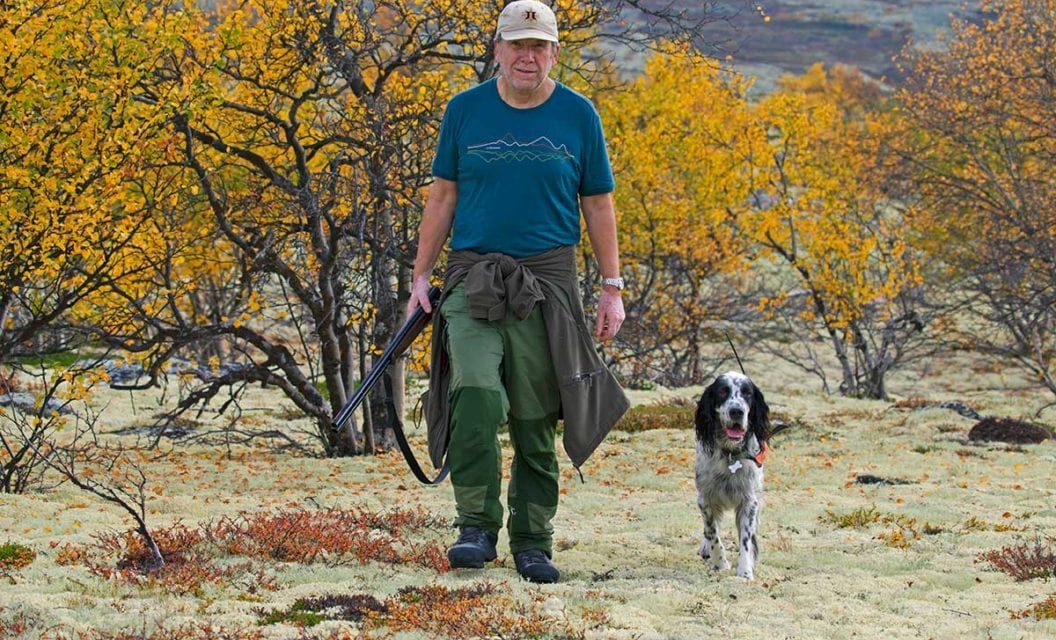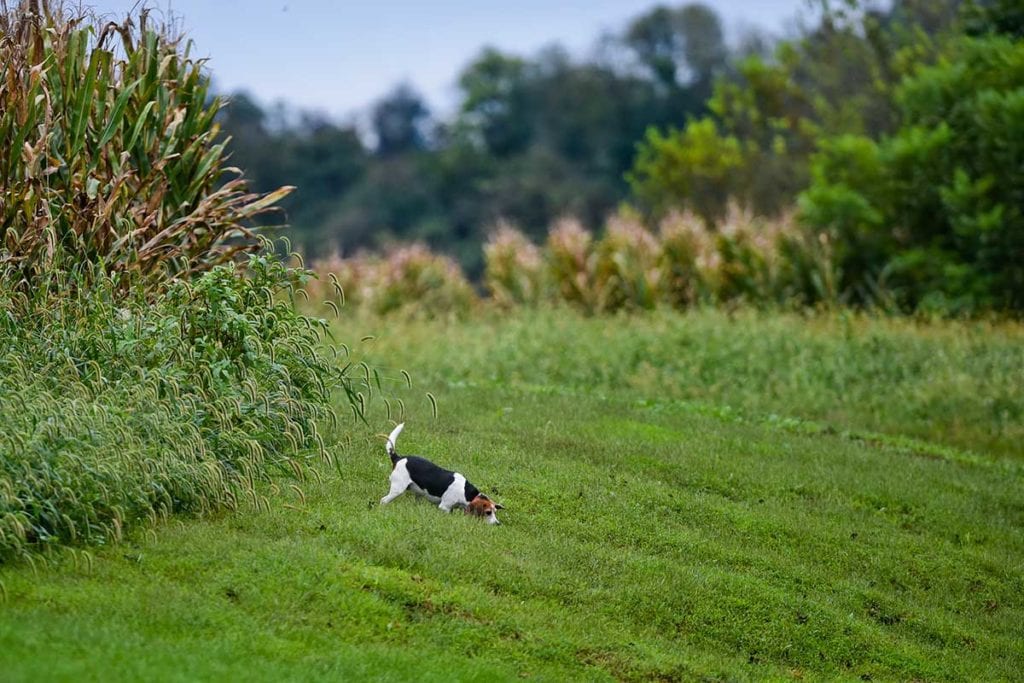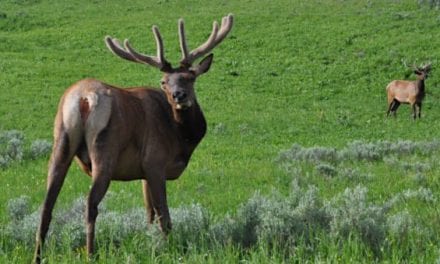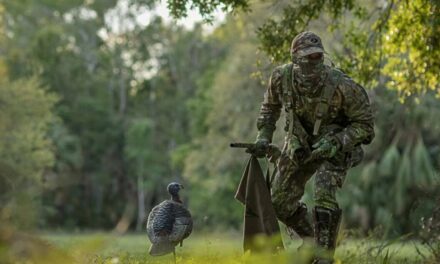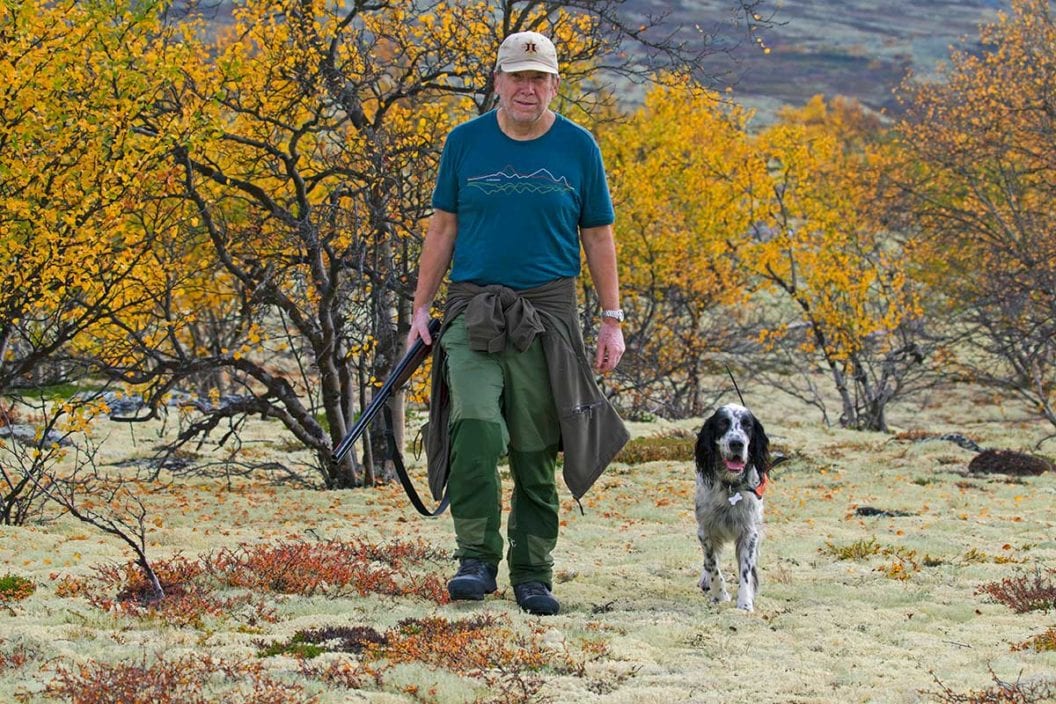
Humans and dogs have formed hunting partnerships for as long as history has been recorded. It is a tale as old as time. For a newbie getting started in hunting with a dog, there are a lot of benefits to getting a companion. But if you don’t know what certain breeds specialize in, it can be confusing to know which kind of dog is best for which kind of hunting. Hunting dogs are typically sorted into one of two categories: bird dogs and scent hounds. Their innate abilities are different and therefore they excel at different types of hunting.
Best Bird Dog Breeds
Bird dogs (sometimes referred to as gun dogs) flush out small game and birds so that the hunter can shoot it. Oftentimes, bird dogs will also retrieve it. Breeds that have natural instincts for this type of hunting include retrievers, spaniels, and pointers. It is important to note that even with great instincts, hunting dogs need to be trained to perform. They cannot be expected to simply rely on instincts. This is unfair to the dog and sets the hunter up for disappointment.
Labrador Retrievers
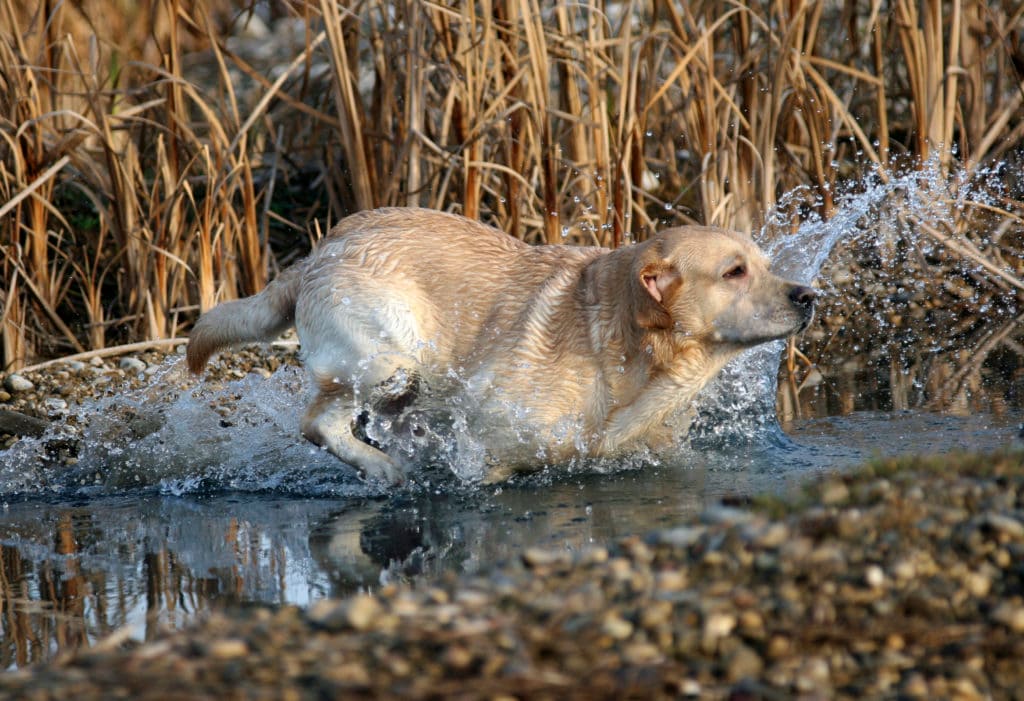
Tina_Rencelj/Getty Images
Labs are widely considered in hunting circles to be the finest duck hunting dogs. They are enthusiastic, smart, able to withstand cold temperatures, extremely loyal, and make great pets. They are one of the larger breeds of bird dogs.
Golden Retrievers
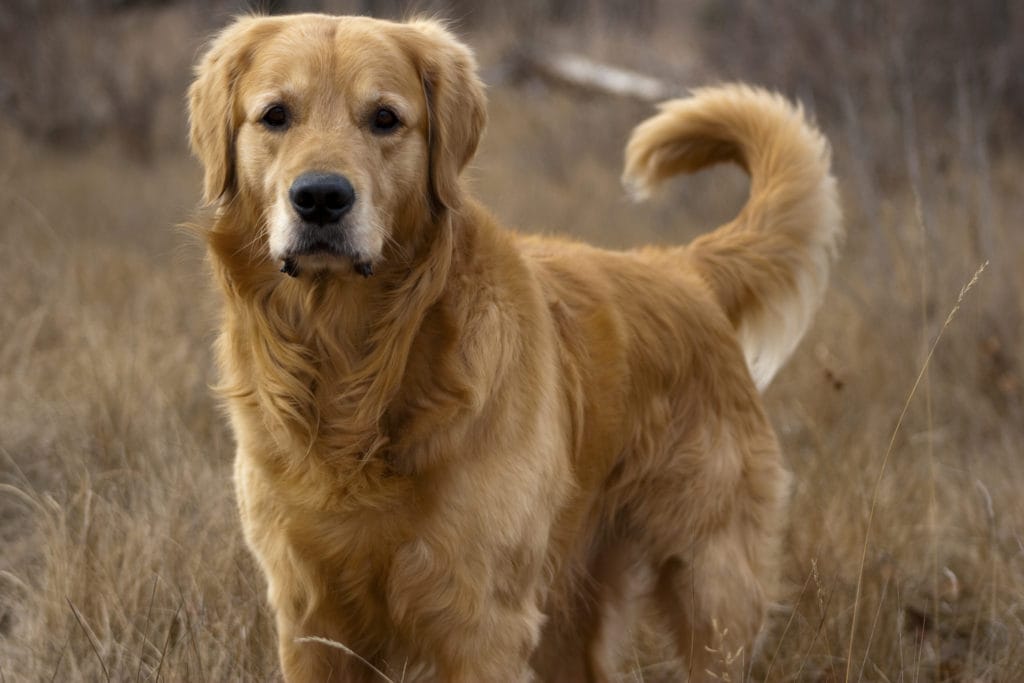
Like other labs, Golden Retrievers have wonderful personalities and take well to training, in addition to being great pets. With a life expectancy a little longer than Labrador Retrievers, Goldens are a good choice for waterfowl hunting.
Irish Water Spaniel
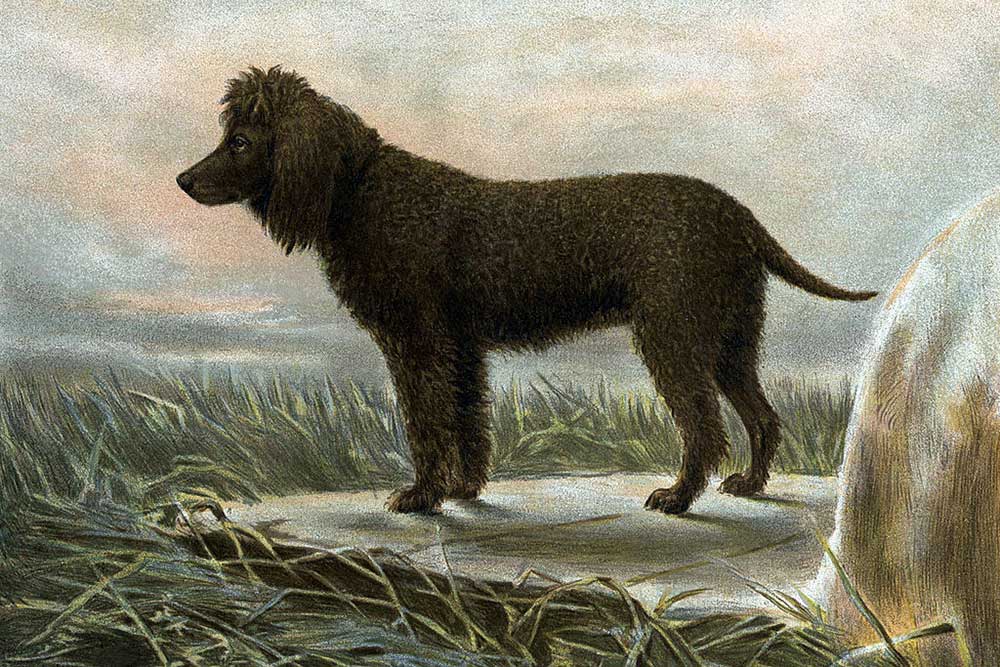
Buyenlarge/Getty
The Irish Water Spaniel breed are great swimmers, hard workers, and brave in the field. These spaniels make great waterfowl hunters because their coat is naturally water repellent and they love to be in the water. They not only flush birds out but they retrieve as well.
English Springer Spaniel
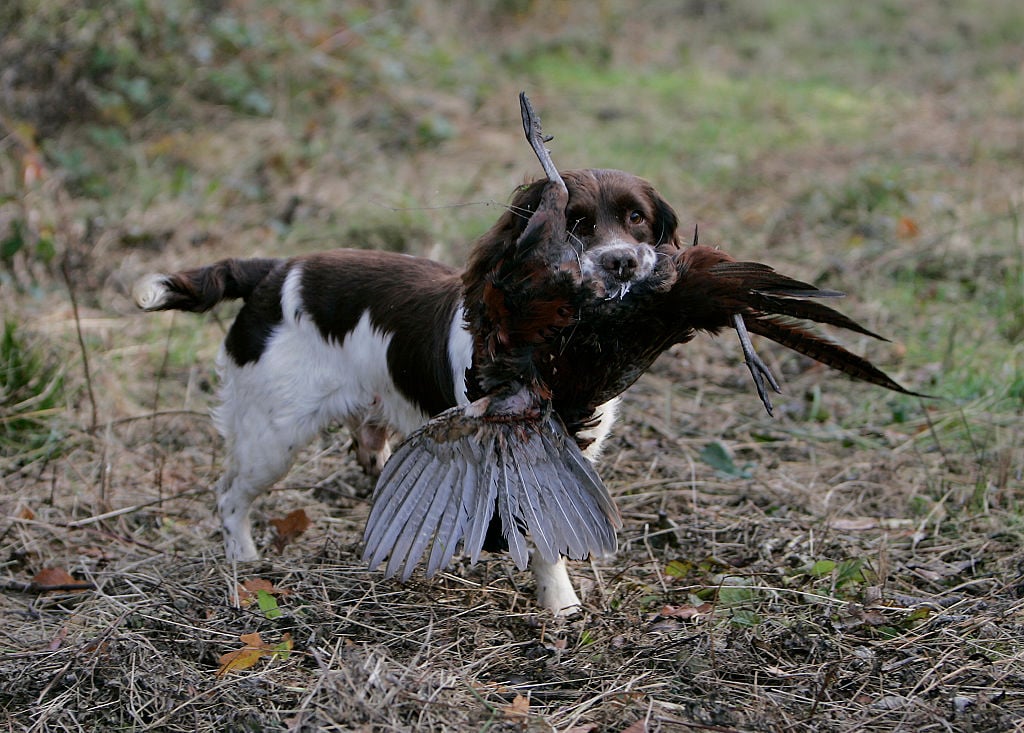
ben radford/Getty
The English Springer Spaniel is commonly used for bird hunting. Its petite frame allows it to squeeze into tighter spaces than their larger counterparts to flush birds out to the hunter. They stand about 19 to 20 inches at the shoulder and weighing between 40 and 50 pounds. They are also known for their shiny, flowy coat and are loyal, well-mannered dogs.
Best Scent Hound Breeds
As the name implies, scent hounds are excellent scent trackers. For hounds, hunting is all about the chase. They typically do not retrieve like bird dogs do. They chase the prey and the hunter shoots it. Many hunters who work with hounds cite the excitement of the dog as one of the main reasons to hunt this way. The hounds let out deep, excited bellows as they follow the track. Hounds are highly focused while hunting and will ignore almost everything else, sometimes even the owners’ commands. It is crucial that hunters start training with hounds when they are young and remain consistent for a lifetime.
Beagles
The quintessential rabbit and hare hunting dog, beagles are short, compact scent-tracking powerhouses. They are rugged for their size and will chase all day through even the roughest conditions. Beagles are pack animals and thrive when living and hunting in pairs or groups.
Black and Tan Coonhounds
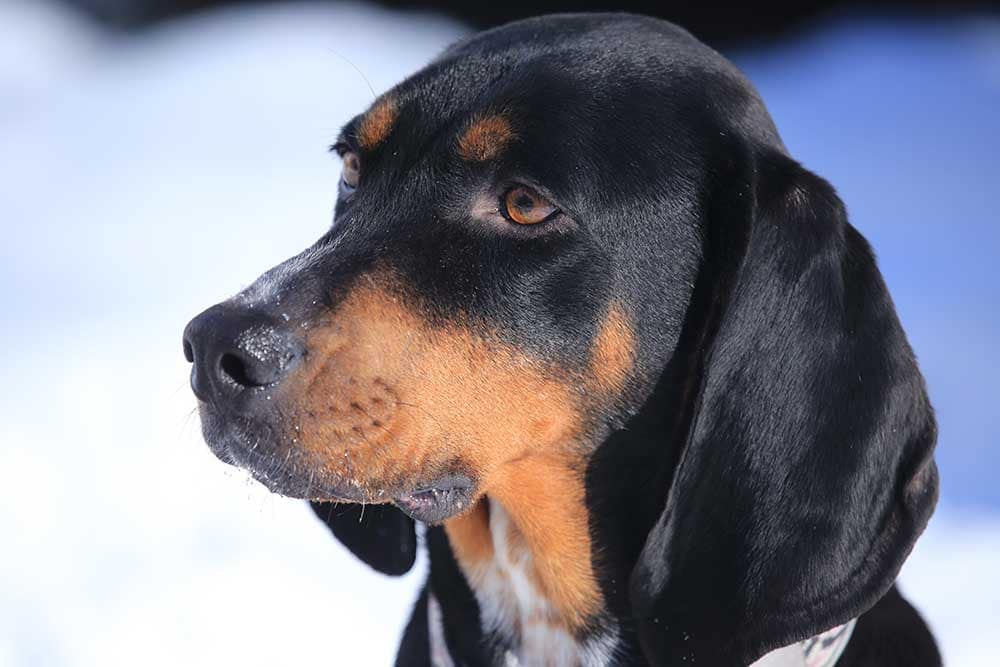
aMikeK/Getty
Black and Tan Coonhounds are phenomenal dogs. Good with children and other dogs, eager to learn, friendly and smart, they make wonderful hunters. They are typically used for racoon and coyote hunting. they have muscular forms and short, silky coats. They grow large and weigh between 65 to 115 pounds. Like other hounds, they do have a prey instinct, so training and a fenced in yard is a must.
Bluetick Coonhound
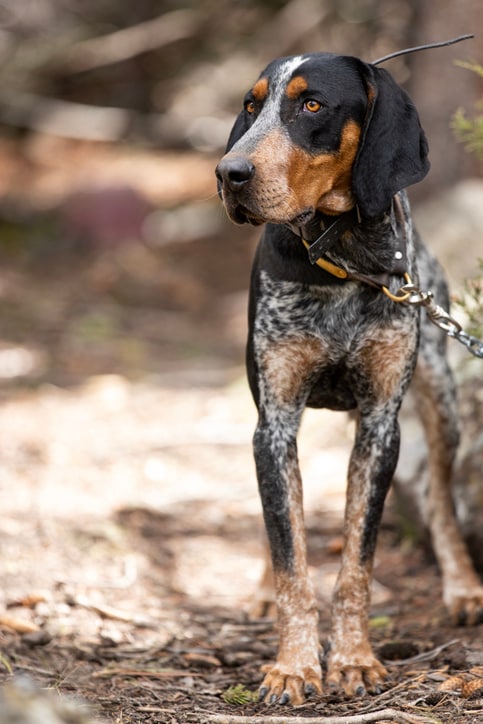
Scott Allan/Getty
Absolutely lovely to look at, Blueticks make good dogs for hunting racoon and other nocturnals, as the name implies. Blueticks have a tremendous prey drive, so they can sometimes be difficult to train and sometimes do not get along well with other dogs or small pets. Some can make good family pets with plenty of training, but others are best with only adults.
Blood Hounds
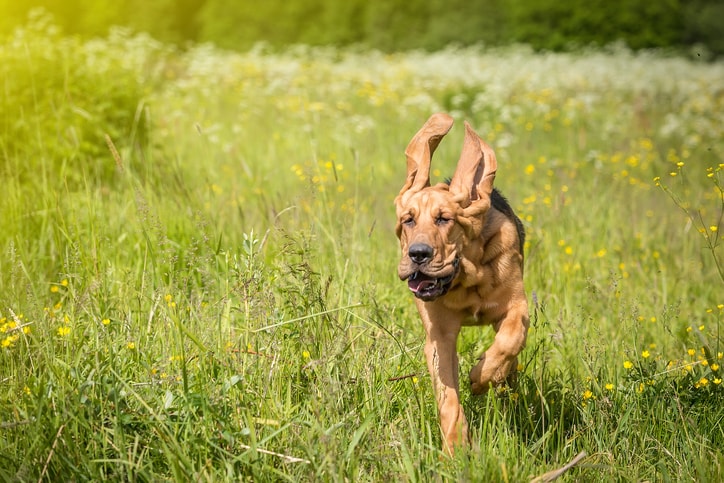
Edoma/Getty
Blood hounds are arguably the best trackers of all the scent hounds. They are so innately talented they are even used by law enforcement for their superior scent tracking abilities. They are biologically designed for it – even their long ears and squishy rolls are designed to “scoop” up scent as they track. They can be used in tracking wild boar, deer, and other game. Some make good family pets, and some do not.
READ MORE: TIPS FOR HUNTING RABBIT WITHOUT A DOG
The post Picking a Good Hunting Dog Based on the Breed's Expertise appeared first on Wide Open Spaces.

